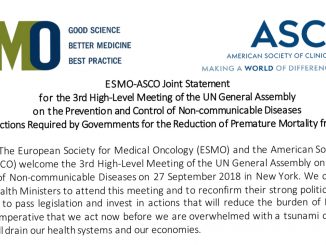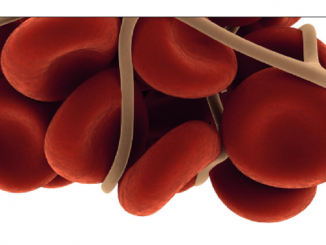“In the history of cancer research, there has always been tension between those who want to treat cancer and those who think we should prevent it,” writes the pioneering medical oncologist and former head of the US National Cancer Institute, Vincent De Vita, in his recent book The Death Of Cancer. While they are obviously both important, he says, “The question has always been, where should researchers focus their efforts?”
In recent decades, the lion’s share of the research effort has gone to treatment. But three outstanding meetings that recently took place within months of each other, in Europe, the US and India, may signal a change of emphasis.
Last October, ‘Prevent the Preventable’, the third meeting of the World Oncology Forum, took place in Milan, co-chaired by Michael Sporn, the ‘father’ of chemoprevention. In early February 2016, 70 top experts gathered in Leesburg, Virginia, to brainstorm on ‘Shaping the Future of Cancer Prevention’, hosted by the American Association for Cancer Research, and co-chaired by Ernest Hawk and Scott Lippmann. Later that month, in Mumbai, the agenda of the ‘Challenging Dogmas’ conference, chaired by Indraneel Mittra and Rajendra Badwe, focused heavily on the need to rethink strategies in the light of new knowledge about the process of carcinogenesis.
A key message of these three meetings? That we know very little about cancer prevention and we need to invest in research.
Chemoprevention efforts – the use of chemicals to stop carcinogenesis – have not realised the dream of a magic anticancer pill. Tamoxifen can halve the risk of breast cancer, but for a number of reasons it is not commonly used for this purpose. Aspirin looks promising against some types of cancers, but its impact is still unclear. Some of us may benefit from metformin, but data are not solid enough to move to practice.
Then we need to understand more about risk factors – in particular the big five: smoking, diet, physical exercise, alcohol and sun exposure. Most of our data come from the Anglo-Saxon world, so do not reflect the reality for the rest of the planet. Risk factors vary widely even within Europe, from the Portuguese farmer who exercises a lot in the open air, is genetically protected from sun exposure, eats naturally and well, drinks a bit of Mateus and smokes at least 10 cigarettes a day, to the Irish woman working in a Dublin call centre who does not smoke, has very little sun exposure, sometimes goes to the gym, eats a completely different type of food and often downs a pint or two of Guinness in the evening.
Much of the progress in treating cancer in recent years has come from learning to feed multiple factors into treatment decisions – tumour grade, proliferation, receptor status. Faster progress in helping people stay cancer free now requires that we learn more about individual risk factors and adopt a similar approach to personalising prevention.





